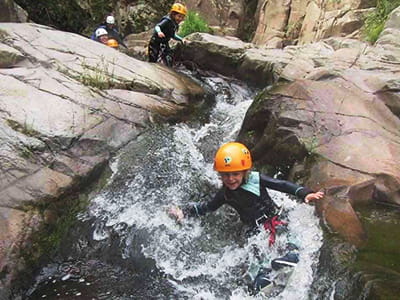Aiguamolls National Park: Aiguamolls de l'Empordà Natural Park - Sanctuary of Biodiversity
Nestled between the Fluvià and Muga rivers along the Costa Brava, Aiguamolls de l'Empordà Natural Park is a stunning example of Catalonia's rich natural heritage. Established in 1983, this park spans over 4,800 hectares, making it the second largest wetland area in Catalonia, following the Ebro Delta. Known for its diverse ecosystems and abundant wildlife, Aiguamolls serves as a vital refuge for numerous species, particularly birds.
Aiguamolls National Park Historical Background
Historically, the marshes of Aiguamolls were part of a vast ecosystem that included lagoons and dunes, supporting a wide variety of flora and fauna. However, significant portions of these wetlands were drained during the 19th century for agricultural development. By the 1970s, urbanization threatened the remaining marshlands. In response, local conservationists launched a campaign to protect this unique environment, leading to its designation as a natural park in 1983.
Aiguamolls National Park Ecological Significance
Aiguamolls de l'Empordà is renowned for its rich biodiversity. The park features a mosaic of habitats including freshwater ponds, saltwater marshes, reed beds, and riverine forests. These diverse environments support over 300 species of birds, with around 90 species nesting within the park. Notable bird species include:
- Great Bittern
- Cattle Egret
- Purple Heron
- Marsh Harrier
- White Stork
The park is particularly important for migratory birds that use the wetlands as resting and feeding grounds during their seasonal journeys.
Flora and Fauna
The park's flora is equally impressive, characterized by various plant communities adapted to wetland conditions. Key plant types include:
- Aquatic plants thriving in ponds
- Marram grass on sandy dunes
- Common reeds in marsh areas
The wetlands also provide habitat for several mammal species such as otters, foxes, and wild boars. The presence of unique species like the garganey, which symbolizes the park, highlights its ecological importance.
Visitor Experience
Aiguamolls de l'Empordà offers numerous opportunities for outdoor recreation and wildlife observation. Visitors can explore well-maintained trails that wind through different habitats, providing excellent vantage points for birdwatching. The park features several hides and observation towers strategically placed for optimal viewing of the diverse birdlife.
The Cortalet Visitor Centre, located between Sant Pere Pescador and Castelló d'Ampuries, serves as a gateway to the park. Here, visitors can find information about guided tours, educational programs, and maps to enhance their experience.
Conservation Efforts
Ongoing conservation efforts are crucial to maintaining the ecological integrity of Aiguamolls de l'Empordà. The park is part of the Ramsar Convention on Wetlands, which emphasizes the importance of protecting these vital ecosystems globally. Local organizations continue to work on habitat restoration projects and public awareness campaigns to ensure that future generations can enjoy this natural treasure.
Aiguamolls National Park Conclusion
Aiguamolls de l'Empordà Natural Park is not only a haven for wildlife but also a testament to successful conservation efforts in Catalonia. With its breathtaking landscapes and rich biodiversity, it stands as a must-visit destination for nature enthusiasts and anyone looking to explore the ecological wonders of Spain's Costa Brava. Whether you're birdwatching or simply enjoying a peaceful walk through its varied habitats, Aiguamolls offers an unforgettable experience immersed in nature's beauty.
Similar to Aiguamolls National Park
Canyoning, Via Ferratas and Team Building ... you choose the activity, and we will make sure you will enjoy it!
Digital Partners
Corporate Online Marketing Services
Barcelona Data Driven Marketing
2Let2 Cathays Cardiff


